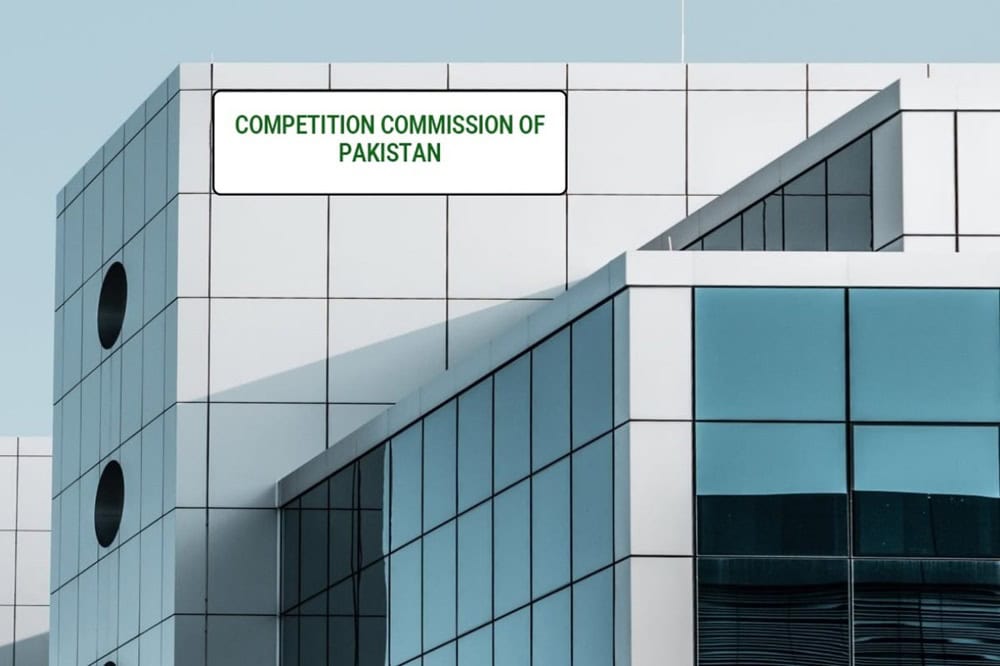The Competition Commission of Pakistan (CCP) has released a comprehensive report titled “Competition Assessment Study of the Steel Sector in Pakistan,” identifying key competition challenges and structural inefficiencies in the country’s steel industry.
The study emphasizes the absence of a national steel policy and recommends the establishment of a dedicated Steel Ministry, drawing on successful examples from China and India.
Pakistan’s manufacturing sector remains a cornerstone of national economic growth, contributing 71 percent of total exports and employing around 15 percent of the workforce.
Within this sector, the steel industry plays a vital role. The report examines the sector from a competition perspective, noting that Large-Scale Manufacturing (LSM) dominates the space, accounting for over 69 percent of total manufacturing and 8.2 percent of GDP.
READ MORE: Pakistan’s New Airline Air Karachi Starts Operations
In FY24, Pakistan’s local steel production stood at 8.4 million metric tons (MT)—comprising 4.9 million MT of long steel (billets and ingots) and 3.5 million MT of flat steel (coils and plates). Imports of steel scrap reached 2.7 million MT, underscoring the industry’s dependence on imported raw materials.
Despite this, per capita steel consumption remains low at 47 kilograms, reflecting subdued industrial activity and slow infrastructure growth.
Demand in the sector is primarily driven by infrastructure development, urbanization, industrial expansion, and major projects such as CPEC, with construction and real estate serving as key consumers. On the supply side, however, the industry continues to struggle with heavy import dependence, energy shortages, and limited availability of local raw materials.
The study notes that Pakistan Steel Mills (PSM)—once a strategic national asset with an annual production capacity of 1.1 million tons—has remained non-operational since 2015 due to persistent financial losses and outdated technology. The mill’s liabilities now exceed PKR 400 billion.
In contrast, global peers such as China, India, and Russia have strengthened their steel industries through sustained government support, technological innovation, and strategic investments. The CCP study highlights the need for Pakistan to develop domestic coal and iron ore resources, modernize infrastructure, and adopt sustainable, energy-efficient technologies to regain competitiveness.
Regulatory and institutional inefficiencies further aggravate the sector’s challenges. The Ease of Doing Business Committee lacks industry-specific expertise, frequent SRO changes create uncertainty, and the absence of a national steel policy hinders strategic direction.
Alarmingly, 50–60 percent of domestic production is substandard due to weak regulatory enforcement, disadvantaging compliant producers. Tax exemptions in ex-FATA/PATA areas have also distorted competition—an estimated 1.5 million tons of untaxed steel enters settled markets annually, resulting in PKR 40 billion in revenue losses.
The sector also faces issues of market concentration, policy bias, and limited diversification into high-value-added products. High entry barriers, dominance of undocumented units, minimal R&D investment, and dependence on imported scrap have constrained competitiveness. Weak compliance standards continue to erode consumer trust and compromise safety.
To address these challenges, the report recommends a comprehensive policy framework that includes:
- Developing a national steel policy, rationalizing taxation, stabilizing SRO regimes, and strengthening anti-dumping measures.
- Expanding the Committee on Ease of Doing Business (CoEDB) to include industry experts and CCP representation, while enhancing the capacities of the Ministries of Industries and Commerce and expediting National Tariff Commission (NTC) processes.
- Enforcing quality standards, formalizing undocumented units, and eliminating distortions caused by ex-FATA/PATA exemptions.
- Promoting Direct Reduced Iron (DRI) technology, incentivizing iron ore mining and value addition, and supporting green, energy-efficient technologies.
The CCP reaffirmed its commitment to working with all relevant stakeholders to promote pro-competition reforms and ensure long-term sustainability in Pakistan’s steel industry, in line with international best practices.









